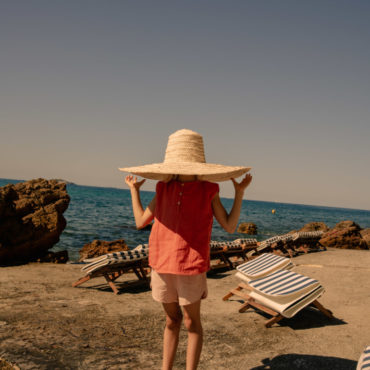A committed brand that promotes diversity
A contemporary style between bohemian and Parisian nonchalance

Studio Bohème, founded in 2017 by Kim Le Thé, is an organic brand of timeless products for children and women, driven by ecology, minimalism and diversity. Far from the commandments of fast fashion, the designer develops a contemporary style between bohemian and Parisian nonchalance. In 2021, Kim decides to collaborate with Julie Caby, with whom she became friends from the brand’s launch. Complementarily, Julie and Kim share ambitious projects, but not alone. Giggles, family anecdotes, hundreds of daily messages and “coffee croissants” are the salt of their busy lives. These days, the brand launches two collections a year for children aged 0-10 years, as well as women’s capsules.
The least polluting garment is the one that is not produced
Organic from the beginning
From the beginning, Studio Bohème has advocated the use of non-toxic fabrics without the addition of chemicals. To respect children’s fragile skin, all the fabrics used are of natural origin, from organic farming, and particularly soft: Pima cotton jersey, fleece, slub cotton gauze, sponge…
The materials are GOTS certified and labelled OEKO TEX standard 100, the two most reliable labels in the textile industry.
At Studio Bohème, they are determined to produce in a reasoned, ecological and ethical way and are making more and more efforts in this direction. No greenwashing here, they want to make clothes you fall in love with, they want to keep doing it right and improve themselves.
Zero plastic goal
Manufactured in Portugal
Studio Bohème has chosen to produce its collections in Europe, in Portugal, in a family workshop. A country known for its quality production and whose proximity reduces the impact of transport. Another advantage, this distance also makes it possible to build a special relationship with this partner atelier from the start.
For several years, Studio Boheme has been working to make all packaging as environmentally friendly as possible. Unfortunately, they cannot yet do without it, but are always actively looking for the least polluting packaging.









